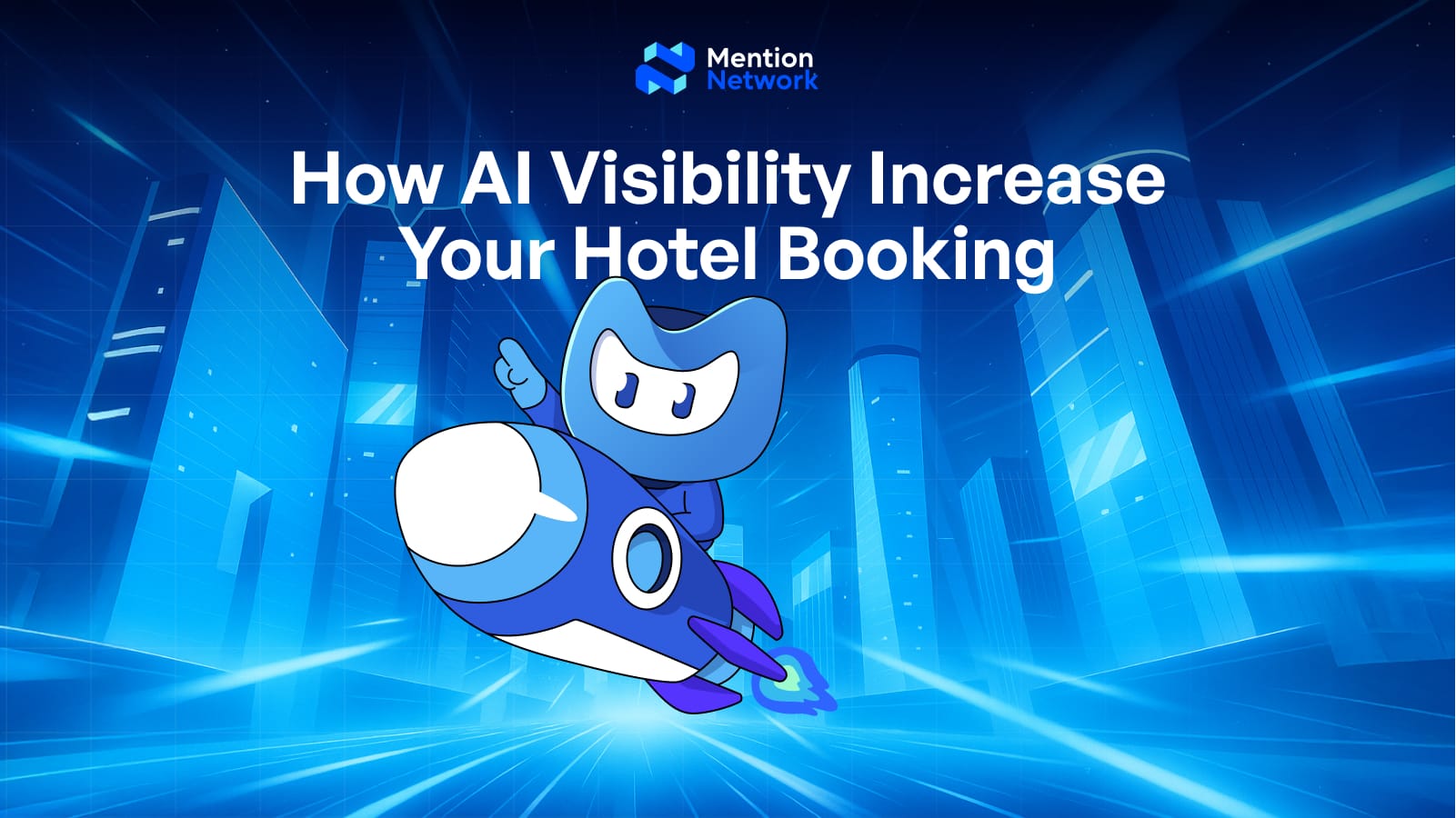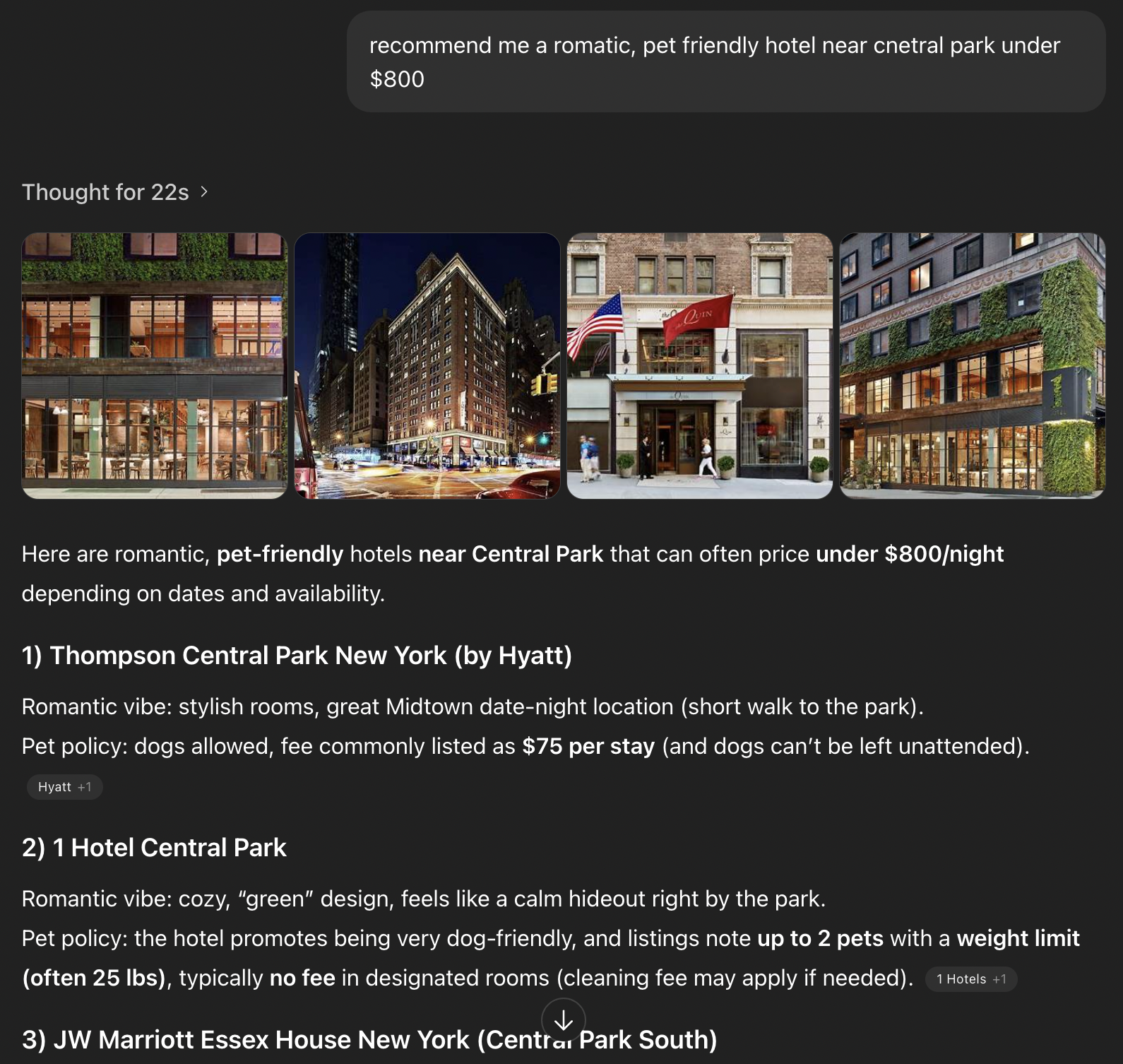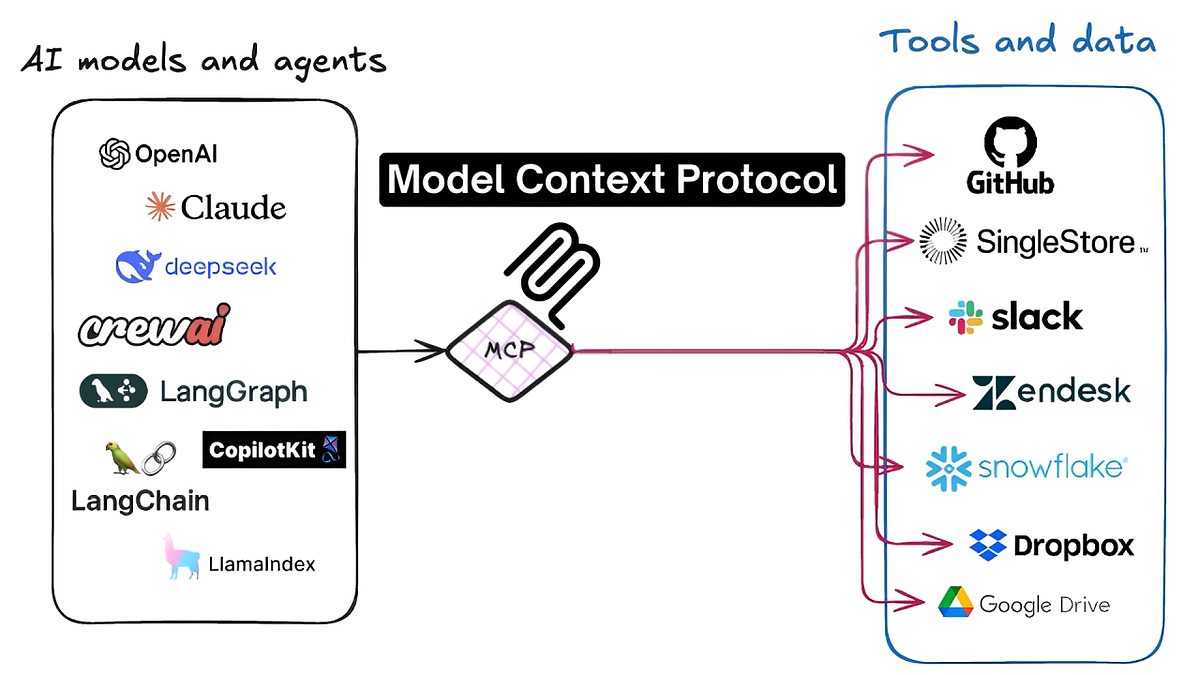How AI Visibility Increase Your Hotel Booking

A recent analysis of AI-generated travel recommendations showed that for high-value queries like "best hotels in Miami," major hotel brands were entirely absent from the top results. Meanwhile, consumer behavior has already shifted, with over 50% of travelers planning to use AI for leisure travel within the next year.
This chasm between surging demand via AI and widespread hotel invisibility defines the AI Visibility Imperative.This isn't just a technical update, it's the new battleground for direct channel profitability. Mastering this domain is the difference between capturing the next generation of high-value travelers and becoming an un-recommended afterthought.
- AI is the new distribution channel: Conversational AI is collapsing the marketing funnel, making discovery and booking a single, zero-click transaction.
- Structured Data is the Gatekeeper: AI agents require data in machine-readable formats (the new SEO) to even consider a property for recommendation.
- The Model Context Protocol (MCP) is the key: This technical standard enables real-time rate access and direct, seamless booking within the AI interface.
- Early Adoption Creates Asymmetry: Hotels that provide high-quality data now are actively training AI models to prefer their properties, creating a compounding competitive advantage.
The Invisibility Crisis: Why Your Traditional SEO is Failing AI
The core reason most hotels fail the AI readiness test is simple: Your digital presence was built for human eyes, not machine consumption.
The shift from standard Search Engine Optimization (SEO) to Generative Engine Optimization (GEO) demands a complete reframing of how property data is stored and distributed. When a traveler asks an AI Chatboxes, "recommend me a romatic, pet friendly hotel near central park under $800" the AI needs definitive, quantifiable answers instantly.

Why it matters: Traditional search prioritizes links, generative AI prioritizes answers. If the AI cannot instantly and accurately verify your real-time rate, amenity details, and booking rules, it cannot responsibly include you in its synthesized recommendation. To the AI, if the data is not structured, the hotel does not exist. This is the existential challenge of AI Visibility.
The Barrier of Unstructured Content
Your beautiful website with its stunning photography and descriptive, narrative text, is often digital noise to an AI agent trying to parse transactional details. AI needs specific data points tagged and organized in standardized formats, moving beyond simple keywords toward semantic understanding. Without this infrastructure, your property is opaque. The AI defaults to recommending competitors or intermediaries (OTAs) whose data is already clean and accessible. This data gap is the single biggest threat to the direct booking channel.
The Two Pillars of AI Visibility: The Technical Mandate
Achieving true visibility in the conversational era is not a software problem, it’s a data infrastructure problem. We have identified four non-negotiable pillars that separate AI winners from the perpetually invisible.
1. AI-Readable Content: The New Technical Standard
All property information must be atomized and structured for immediate, comparative machine consumption.
The content that wins is granular, real-time, and compliant with open technical standards. This goes far beyond basic website details. It encompasses every element required for a confident recommendation and transaction:
- Real-Time Inventory and Rate (ARI): This must be delivered via fast, modern APIs. The data must be granular enough for the AI to understand not just "a room," but the specific view, bed configuration, and associated package.
- Meticulous Amenity Mapping: Amenities must be tagged with universal identifiers. For example, "business center" isn't enough, the AI needs to know "High-speed Ethernet available", "24-hour access" and "private meeting pods"
- Sentiment and Review Data: Clean, categorized summaries of guest reviews must be fed directly into the system, allowing the AI to integrate verifiable guest sentiment (e.g., "known for excellent breakfast" or "quiet street") into its recommendation logic.
2. Direct Bookability via Model Context Protocol (MCP)

AI agents must be able to complete a booking directly within the conversational interface to secure the reservation.
The era of redirecting travelers to a separate website is over. The friction generated by this handoff is precisely what AI is designed to eliminate. The Model Context Protocol (MCP) represents the future of direct channel integration.
How it works: MCP is the technical standard that allows a LLMs to translate a traveler's conversational request into a series of actionable API calls to your Central Reservation System (CRS) or Property Management System (PMS). This enables the AI agent to:
- Check live availability and rates.
- Apply loyalty membership benefits and personalized offers.
- Process the payment and confirm the booking.
The entire process occurs without the traveler leaving the chat interface. This zero-click booking capability is the ultimate expression of AI Visibility and the most powerful tool for maximizing direct conversion.
How to Boost Your Brand Visibility on AI Chatboxes
In the era of Generative AI, traditional SEO isn't enough. To stay relevant, your brand needs to be part of the "AI conversation."

Mention Network is the best AI Visibility Tools for optimizing your brand’s presence and citation share across AI chatboxes. We deliver a comprehensive brand intelligence report powered by a massive dataset:
- 32,449 authentic user prompts.
- 4,026,319 verified citations across 6 leading LLMs.
Our analytics go beyond keywords, we examine how your brand is positioned when real users turn to AI assistants for expert recommendations, product comparisons, and strategic guidance.
Unlock Your AI Visibility Score
Generate Mention Network Report for your brand to see exactly where you rank in the AI ecosystem and how to claim your spot in the top citations.
If you have any questions, email us at [email protected], or book a quick call for free support with our team here
The Competitive Edge: Why Timing Matters Now
We have seen this distribution pattern before. When OTAs emerged, early movers captured lasting market share while skeptics debated commission models. The adoption of AI is following the same trajectory, but at a speed that allows for zero debate.
Early Adoption Creates Asymmetry
The technical barrier to entry for AI Visibility is currently high, which is precisely why the competitive advantage is so significant. Hotels that act now gain two critical forms of asymmetry:
- Market Share Capture: They are capturing high-value travelers right now, while the majority of competitors remain invisible.
- Model Training: By providing clean, reliable, and standardized data early on, these hotels are actively training the AI models to prefer and rely on their data feed. This creates a feedback loop where the AI organically learns to favor the best-structured data, cementing the early adopter’s position as the default recommendation.
The window for easy wins is closing. Every month a hotel waits, AI Chatboxes solidify relationships with competing data infrastructures, making it exponentially harder and more expensive for laggards to catch up. This is not a future threat, it is a present-day distribution crisis demanding immediate infrastructure investment.
Conclusion: The Era of Proactive Distribution
The AI Visibility Imperative is the defining strategic challenge for hotel leadership. It is a moment of choice: Will your brand be an active participant in the conversational booking era, or will it be rendered functionally invisible by the new digital gatekeepers?
The solution is not another app or a chatbot wrapper, it is the establishment of a robust, centralized, and machine-readable data infrastructure. By mastering AI-Readable Content, enabling Direct Bookability via MCP, maintaining absolute Rate Parity, hotels can secure the highest-value direct bookings and future-proof their distribution strategy.
Frequently Asked Questions (FAQ)
What is AI Visibility
AI Visibility is optimizing your hotel's transactional data (rates, amenities) so AI agents can instantly read it and recommend you
Why can't AI agents just use the data on my website?
Your website content is unstructured (built for human viewing). AI needs data in specific, machine-readable formats to instantly verify real-time prices and availability, which is essential for booking recommendations.
What technical standard enables direct bookings through an AI chat?
The Model Context Protocol (MCP). This allows the AI agent to communicate directly with your booking system, enabling zero-click, direct reservations within the conversation itself.
How do external factors like reviews affect my AI ranking?
Mention Network provides the trust signals AI models require. The AI uses positive sentiment from reviews as a verified attribute to confidently match your property to a traveler's specific request.

